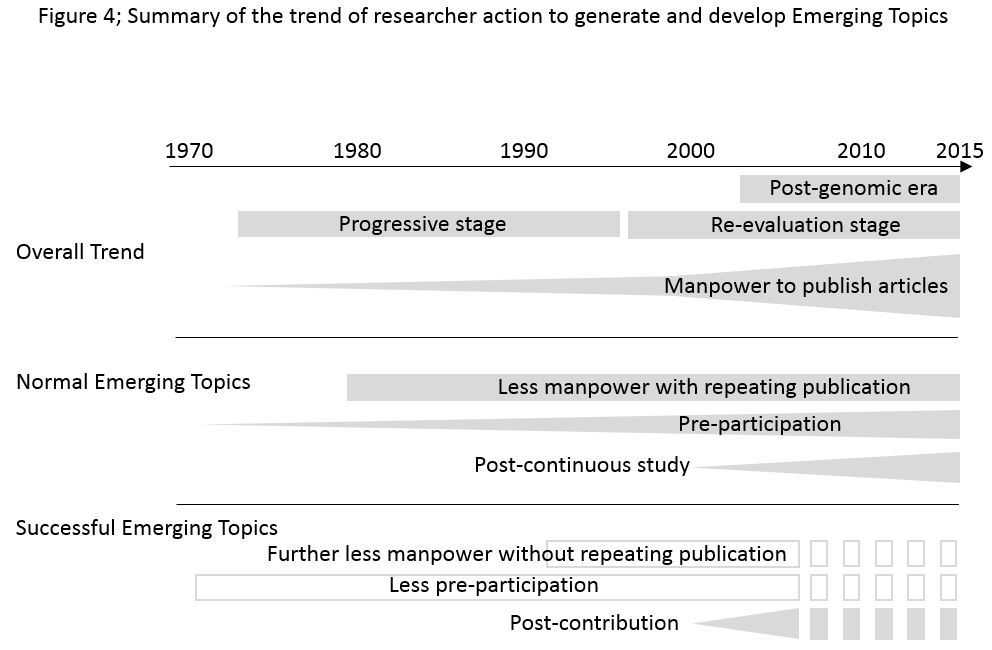・We analyzed all the articles found on PubMed in the past half a century to clarify the pre-, contemporary-, and post-participation of researchers publishing articles containing the emerging keywords (elements of emerging topics), including Nobel prize-related ones.
・Smaller groups with fewer previous contributions to particular topics tend to generate Nobel prize class emerging topics.
・Currently, the same researchers reporting particular emerging topics tend to continuously study the same topics for their developments, while, in the 1990s, many other researchers participated their research to develop the reported emerging topics.
Abstract
Understanding the driving forces that generate emerging topics (ETs or Emerging Research Topics) will assist in the sound development of science and technologies. In the present study, we aim to clarify the researcher dynamics of generating and developing ETs in life sciences and medicine over the past half-century by analyzing the pre-, contemporary-, and post-participation of researchers publishing articles containing the emerging keywords that are elements of ETs. Our results suggest that, while manpower needs for publication have increased, less manpower is actually required to generate ETs these days and that pre-participation in certain research topics has become important to generate regular ETs but not Nobel Prize-class ones. Finally, we discovered that, in this post-genomic era, those researchers who generate ETs also continue to focus on those fields. These trends illustrate a mode shift in the scientific practice of researchers that have generated and developed ETs over the last 50 years as well as highlight the significance of funding projects with high probabilities of generating high-impact ETs.
Benefit
1. Quantitative evidence of the trend researchers has been feeling in on-site research activities.
2. Using our unique scientometrical method, identify great emerging topics such as the Nobel prize-related.
Market Application
1. Governmental think tank for policymaking to distribute research grants and budgets
2. Research analytical services
Publications
https://link.springer.com/article/10.1007/s11192-021-04233-1
Other
https://www.tsukuba.ac.jp/en/research-news/20220121141500.html

